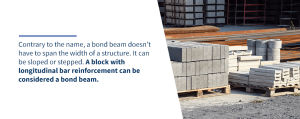The filler material thus is not a structural part of the slab.
Filler slab roof disadvantages.
Advantages of filler slab technology.
Due to the use of low cost less heavy filler material such as clay pots rejected cali cut tiles and broken pieces of cement blocks the filler slab consumes less concrete and steel as compared to conventional rcc slab.
By adopting rcc filler slab construction compared to a rcc solid conventional slab in case where manglore tiles are used as a filler material you can save on approximately 19 of the total concrete and including the cost of filler material you can save around 5 10 of your concrete cost.
Rcc is composite material where concrete is strong in compression and weak in tension.
Due to reduced concrete self weight of the slab is reduced and thus about 30 less steel is required without compromising strength of the slab.
Advantages of using filler slab roof concrete required in this technology is about 20 less than conventional slab construction.
By reducing the quantity and weight of material the roof become less expensive yet retains the strength of the conventional slab.
This image shows a beam.
By reducing the quantity and weight of material the roof become less expensive yet retains the strength of the conventional.
The mechanism the filler slab is a mechanism to replace the concrete in the tension zone.
Here is a detailed article with all the information regarding procedure of rcc slab roof laying.
Filler slab is based on the concrete portions and instead of placing filler material there and is one cost effective roofing system.
Filler slab as projection creating an interesting articulation.
The most popular filler material is the roofing tile.
Hence we are elimi.
The filler slab is a mechanism to replace the concrete in the tension zone.
The filler material thus is not a structural part of the slab.
Where the area above the neutral axis is the compression zone and the area below the neutral axis is tensile zone.
The mechanism the filler slab is a mechanism to replace the concrete in the tension zone.

